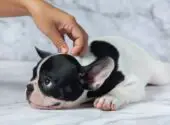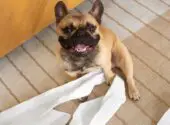It’s a familiar story for many dog owners: leaving the room is your cue for a puppy to start crying. We often joke about it, but have you ever wondered why your pup gets so upset when you leave? There are quite a few reasons for this — boredom, fear, longing for attention, and separation anxiety.
Fortunately, there are ways to manage this problem, creating a peaceful environment where your puppy is happy and content while they wait for your return.
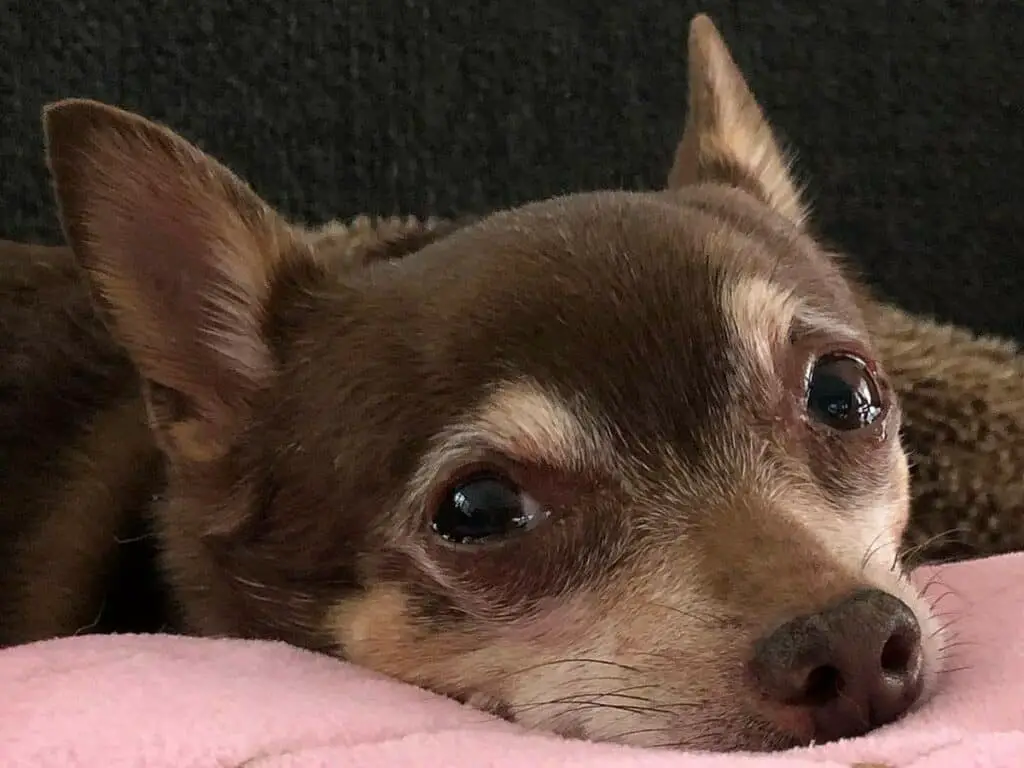
Why Do Puppies Cry?
They’re bored.
When puppies are left alone, they can quickly become bored, resulting in disruptive behavior like crying and destructive chewing. Puppies can become easily bored because they need constant interaction and stimulation from their owners. Loneliness sets in quickly, with nothing to keep them occupied or amused, leading to those heartbreaking cries.
They’re afraid.
Puppies often express their feelings through crying, and fear may be the reason for your pup’s tears. When puppies experience this emotion, it can cause them to panic, resulting in them crying out for comfort from their beloved humans.
As a pet parent, you should ensure your little companion feels secure and calm during those moments of isolation.
They want something from you.
Your pup is trying to communicate with you, letting you know that he or she wants something. Whether it’s food, playtime, or just your presence in the room, they use those sad eyes and whimpering sounds to get their way. And if that doesn’t work? The crying comes into full effect.
They have separation anxiety.
When you are present, your pup feels safe and secure; once you walk away, they can miss that constant companionship and feel anxious. If not addressed properly, puppies’ separation anxiety can worsen over time and manifest in other ways, such as screaming, scratching, excessive licking, shaking, and urinating indoors.
How To Deal With A Puppy Crying When You Leave The Room
This section of the article provides tips on dealing with a puppy crying when you leave the room. It will involve some trial and error, but if you keep at it, you’ll eventually find success.
Crate Training
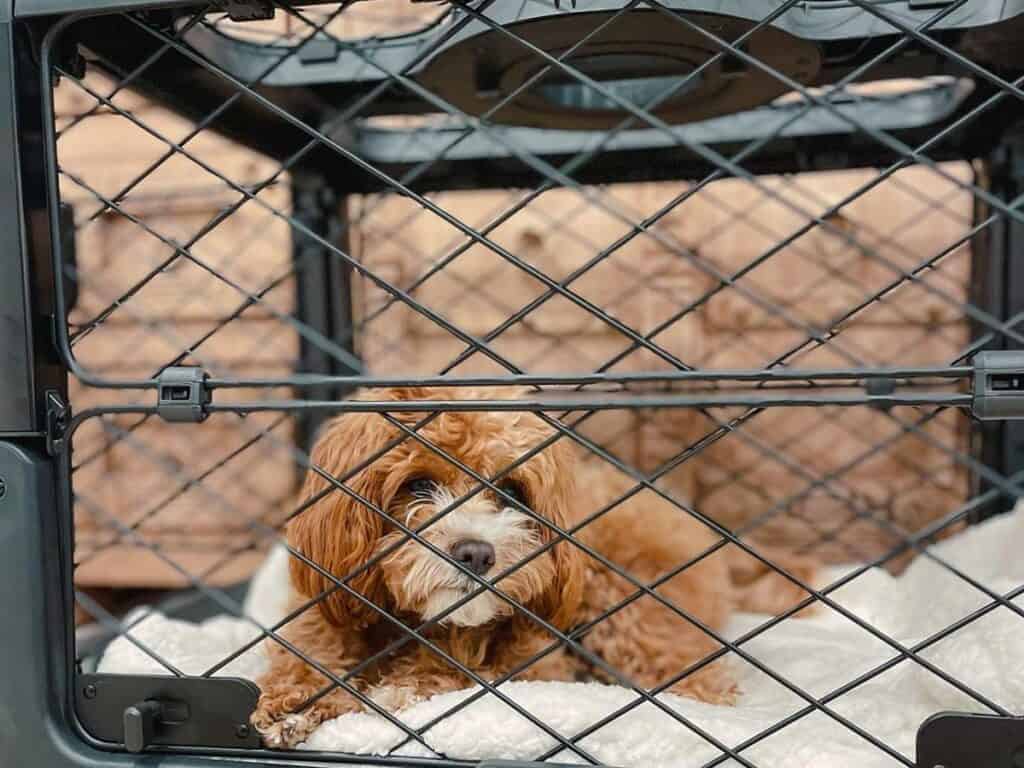
Crate training teaches your pup to feel safe in their own space and view the crate in the corner of your room as their sanctuary. It will take some patience and consistency on your part. Still, by taking it slow and introducing them to being in the crate bit by bit, they’ll eventually become relaxed when you leave the room.
You should also focus on making the crate a comfortable space by adding soft bedding and blankets.
Establishing A Routine
Leaving and returning at the same time every day will create a routine for them, helping them learn that separations are simply a routine rather than something to worry about daily. This predictability will help them associate you with comfort each time they see you return.
Creating Positive Associations
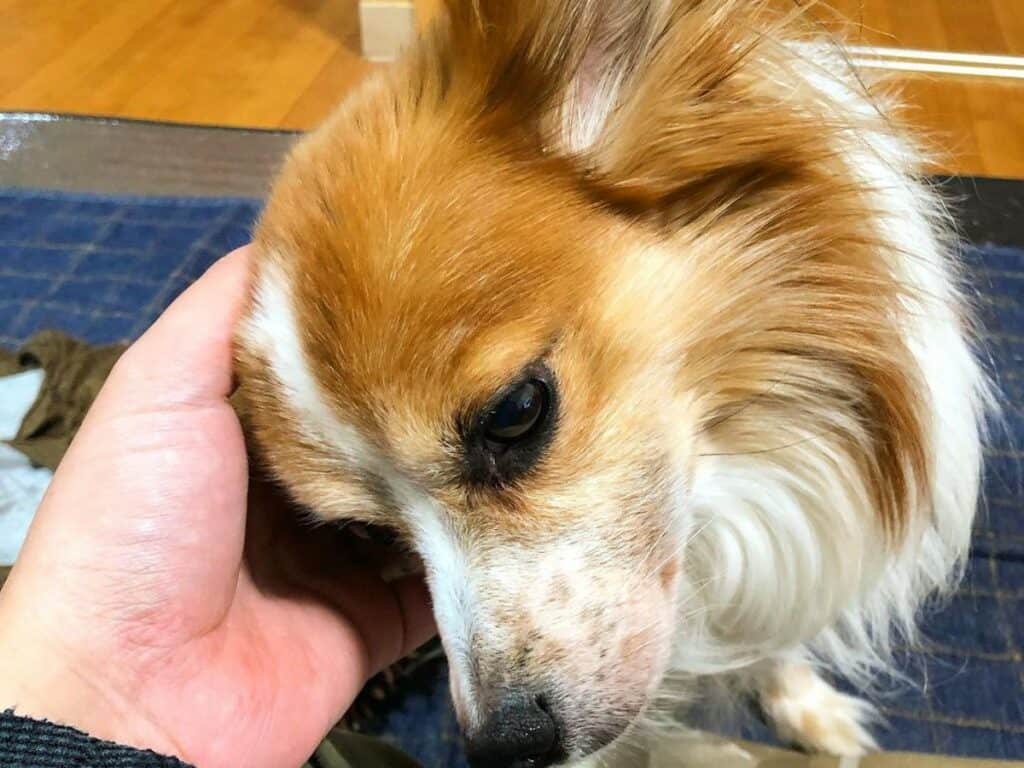
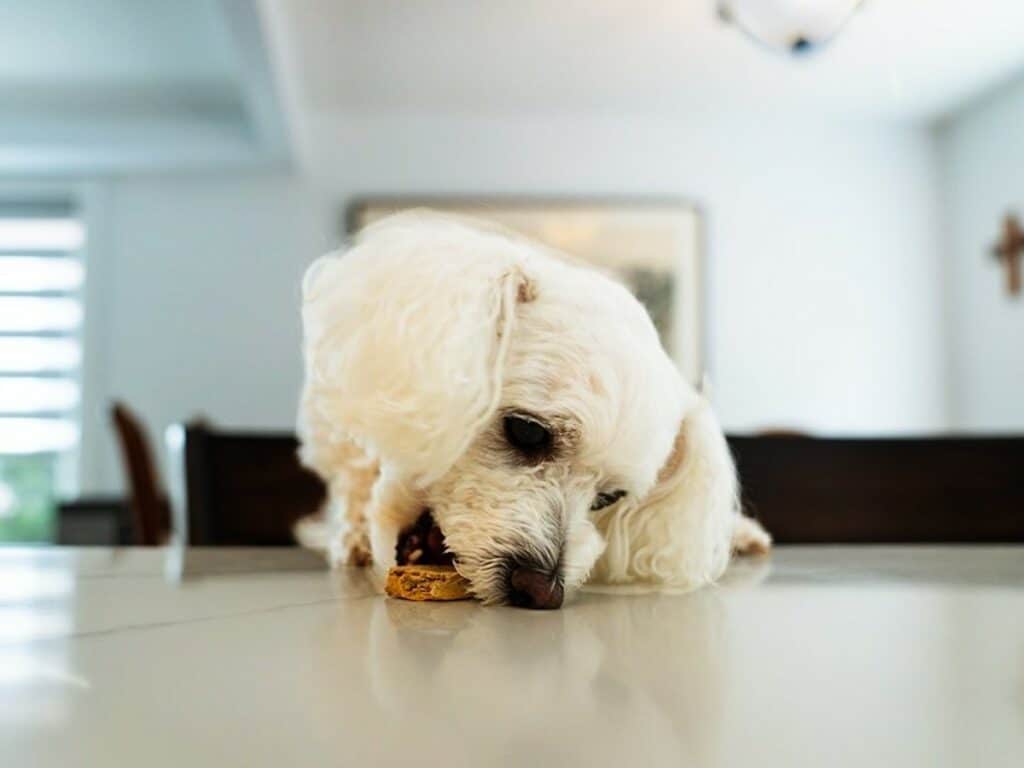
Instead of focusing on the sadness of being separated, why not use this time to create positive associations with your absence?
Here’s how you can make this work. First, give them plenty of treats when you return home so that they associate being separated from you with something positive. Second, give them lots of attention and petting once you get back, so they feel reassured that everything is okay again.
Discouraging Overly Clingy Behavior
To help your pup develop independence early on, teach them how to be comfortable when they’re not in your presence. This means teaching them how to relax even when you’re home but not with them in the same room. With patience and positive reinforcement, puppies can learn that being alone doesn’t have to be a bad thing.
Leaving Quietly
One way of dealing with a crying puppy is by leaving quietly without drawing attention to your departure. This means refraining from saying goodbye or giving your pup extra cuddles before walking out of the room. Make sure to leave items like toys and treats for them while you’re gone, too, so they have something to do in your absence.
Related Questions
Will my puppy destroy things while I’m gone?
The truth is that puppies are full of energy and often get bored easily. Without something to do, they may start to chew on furniture or rummage through things in your room. To prevent this from happening, it’s essential to provide plenty of chew toys before leaving the room. You should also ensure all dangerous items are out of reach, so there’s no risk of harm to your pup.
Will my puppy have a potty accident while I’m away?
Yes, a puppy will most likely urinate indoors due to the stress of being separated from you. The good news is that separation anxiety is manageable with proper training and understanding.
How do I know if my puppy has anxiety?
Anxiety isn’t always easy to spot, but a few signs could indicate your pup is struggling with separation anxiety. If they get easily triggered by loud noises or seem clingy when you’re around, these could be signs that something more serious is happening behind the scenes.
Other indicators include barking, destructive behavior such as chewing furniture or carpets and pacing restlessly when alone.
How should I comfort my anxious puppy?
Try creating a comfortable area for your pup in your room where he can feel secure and access their favourite toys or blankets. More importantly, when you’re preparing to leave the room, don’t pay too much attention or make a big fuss out of saying goodbye, as this will only heighten your furry friend’s anxiety.
Which dog breeds are more prone to developing separation anxiety?
Certain dog breeds are more sensitive and can become distressed when left alone for too long. Schnauzers, Chihuahuas, Golden Retrievers, Terrier Mixes, Border Collies, Toy Poodles, Shih Tzus, and Beagles tend to suffer from severe anxiety due to their strong loyalty and attachment towards their owners.



